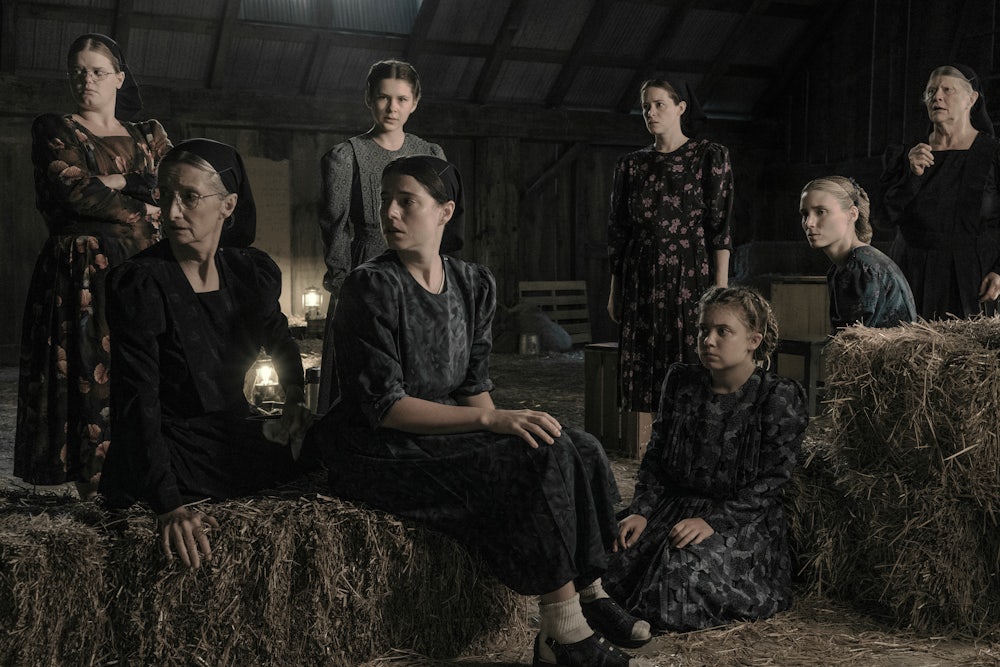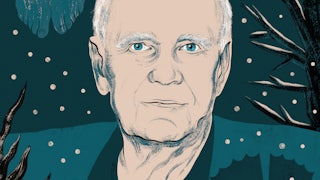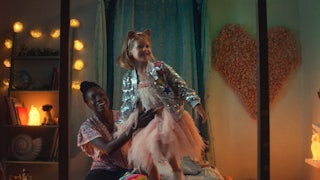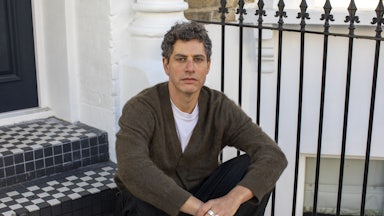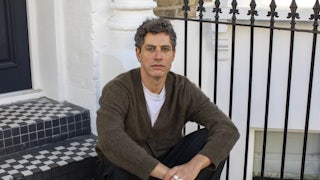Skeptics called them “ghost rapes.” The women in an isolated Mennonite colony in Bolivia were told the semen they found on their thighs in the morning, the blood on their bedsheets, the mud tracks on the floor, the faded memories of someone on top of them in the middle of the night, were visions of hell. The fact that hell smelled remarkably familiar, like the cow shit and coca leaves of their farms, did little to quiet the rumor that the women (and girls as young as three) were being visited by demons at night. Others, though, mostly male elders in the community, dismissed it all as a fiction, the product of “wild female imagination.”
Then one night, in June 2009, one of the women found two men trying to sneak in through her window. Her family caught them as they tried to run away. The next morning, they implicated themselves and six other men from the community in the rapes. They confessed to sexually assaulting more than 150 women and girls over a period of four years (though they later recanted). The reason the victims’ recollections of the attacks were fuzzy, it turned out, was that the attackers had sprayed them with an animal tranquilizer (one typically used on bulls just before they are castrated) that has strong effects on memory.
In August 2011, all but one of the accused were sentenced to 25 years in prison for rape; the other received 12 years for providing the sedative. This came after a widely covered trial, where these Mennonite women, who had been taught their entire lives not to speak to outsiders, sat in front of a judge and a crowded courtroom full of reporters from across the world, and testified.
From her home in Toronto, the novelist Miriam Toews followed the trial more closely than most, eventually turning the story into the novel Women Talking (2018), now a feature film from Canadian writer-director Sarah Polley. The setting for most of the film is a barn where three generations of women from two families, the Friesens and the Loewens, have gathered to decide, over the course of two days, what course of action they should take now that the “ghost rapes” have been revealed to be the work of flesh-and-blood men. As in the novel, they have three options: to do nothing, to leave, or to stay and fight.
Claire Foy plays Salome Friesen, the colony’s firebrand. In the film, Salome has just returned from a two-day walk to a mobile clinic. She went there to get antibiotics for her three-year–old daughter, who was assaulted and now suffers from a sexually transmitted infection. Understandably, she votes to stay and fight (she is pictured in a flashback taking a scythe to a shed where the attackers were being held). Yet this would be a violation of the Mennonites’ pacifist beliefs. “I will become a murderer if I stay,” she tells her mother, trembling. The next best option—to leave—is shot down by Mariche Loewen (Jessie Buckley), who warns the women that God will not know where to find them at the time of the Rapture if they are not in the colony. But to stay, to forgive, is unthinkable for Salome, and, furthermore, as her sister Ona (Rooney Mara) asks: “Is forgiveness that’s forced upon us true forgiveness?”
Polley leans into the almost surreal qualities of Toews’s novel, resisting the urge to tidy up the meandering, essayistic nature of these conversations. I can easily imagine someone, somewhere thinking—these women are talking, but not saying anything, or that just when they start to say something, they get distracted, angry, or need a cigarette break. Why can’t these women focus and get their stories straight? Then you realize—I sound like a prosecutor. Polley’s film works to unburden victims’ testimonies of our expectations, which often emanate, whether we realize it or not, from the legal system. She overturns the notion that women talking about assault must speak in a linear fashion, that there be no gaps in their memory. Embracing the frenetic, disjointed pace of the conversations that unfold in Toews’s novel, she invites us to watch as the women try to fill in those gaps, not with what was, but with what could be.
It occurred to me this is Polley’s first film as a director that is not about a woman having an extramarital affair. Her feature debut was Away From Her (2006), the script based on an Alice Munro story, in which a married woman suffering from Alzheimer’s (played by Julie Christie) moves into a nursing home; over time, she loses her memory of her husband (Gordon Pinsent) and becomes close with another male patient. Her second film, Take This Waltz (2011), starred Michelle Williams as a 28-year-old married woman who falls for her alluring new neighbor, a permanently sweaty rickshaw driver played by Luke Kirby. In 2012, she directed the experimental documentary Stories We Tell, casting actors to play her parents in what was shot to look like old home movies; the film is based on Polley’s realization that she was the product of an extramarital affair between her mother and movie producer Harry Gulkin.
In all her films, however, affairs are incidental to larger, more existential questions that the female characters are pondering. Much like the women in Women Talking, Margot in Take This Waltz spends more time contemplating whether her marital ennui is a problem that needs solving than she spends, well—solving it. “Life has a gap in it,” her sister-in-law warns her. “You don’t go crazy trying to fill it.” In that way, Polley takes situations, like an affair, that we would expect to keep her heroines busy with plot, and instead turns them into the basis for little speeches, giving us words and ideas where we would expect bodies and their motions.
Women Talking, its very plot a conversation, feels like a natural progression for Polley. Which is not to say that she shies away from the physical brutality of what these women have experienced. Cinematographer Luc Montpellier, who worked with Polley on Away From Her and Take This Waltz, has given the film a washed out, near black-and-white canvas, which makes the appearances of blood-streaked flashback scenes all the more arresting.
Yet this is a film where words make up the main action. As the women have no memory of the attacks themselves, their conversation is abstract and theoretical, a Socratic dialogue that unfolds amid farm equipment. These victims, once dismissed as crazy and uneducated, are thus remade into philosopher-kings. Illiterate, banned from reading the Bible, they have only their experience as a framework for discussion, as they weigh matters of forgiveness and what constitutes sin when one is protecting one’s children. The rapes present a crisis of faith for them. Why didn’t God protect us? A young victim named Mejal (Michelle McLeod) contemplates the nature of the sin itself. What was worse: the rape, or the fact that the men “made us disbelieve ourselves?” she asks. The latter, she answers.
Minutes into the debate, practical matters—should they stay or should they go?—are almost an afterthought. By then, they have moved on to questions that will stay with them whatever they decide: Does being preyed upon like animals mean we have the right to lash out like ones? If we stay and fight—what are we fighting for? And “Are the men victims too, victims of the circumstances that made the attacks possible?” And does the absence of men alone guarantee a better society? Mariche’s mother, Greta (Sheila McCarthy), chastises herself for telling her daughter, who has been suffering at the hands of her abusive husband, Klaus, to submit and forgive. “It’s not only the men and boys,” Mariche says plaintively, “who’ve been excellent students.”
It is considered gauche to expect art to provide answers. But the question central to Women Talking—what is solved by punishing individual acts of violence when they are the product of a broader culture?—is so vital that it is hard not to want at least a hint. Polley’s film plays on that desire: Our impatience with the characters’ circular dialogue, our bafflement at their strange jokes (one of the younger women decides to pull a prank mid-debate and jumps off a ledge, landing into a pile of hay), are part of the film’s message. If the characters’ conversation feels off to us, odd or overly theatrical, the question becomes: Why are we so sure we know what victims of this kind of violence should sound like?
Earlier this year, Polley published a memoiristic essay collection titled Run Towards the Danger, in which she wrote about facing fears that chased her at different moments in her life. One of those fears was speaking publicly about her experience with Jian Ghomeshi, the Canadian former radio host, who in 2014 and 2015 was accused by six different women (not including Polley) of sexual assault. Charges were brought against Ghomeshi, but in 2016, after an eight-day trial, a judge acquitted him on all counts. In his decision, the judge said the women’s evidence “suffered not just from inconsistencies and questionable behaviour, but was tainted by outright deception.”
Polley, who alleges that Ghomeshi became violent during a sexual encounter when she was 16 years old and he was around 28, had been discouraged from coming forward by friends and lawyers who said her story, which relied in part on recovered memory, would face similar scrutiny, even ridicule. (Ghomeshi did not respond to The New Republic’s request for comment on her account.) For Polley, the notion that her statement, simply by virtue of the fact that it might not hold up in court, was somehow not worth telling pointed toward a problem in how we are primed to receive the stories of survivors—not as stories, but as testimony. In other words, as something to be funneled through the courts. “It was remarkable,” she writes, “seeing the lawyer brains overtake the human ones in people close to me.”
Above all, Women Talking is a formalist project. At a time when telling women’s stories has devolved into a marketing catchphrase (usually for the next Reese Witherspoon vehicle), Polley’s film refocuses our attention on questions of structure, on how women’s stories are expected to be told and the genre expectations that have been imposed on victims’ testimonies. The conversations in this film are not perfect. As the women talk, they cut one another off, squabble over semantics, and lose their train of thought. We worry the sun will set before they decide what to do, forgetting that to speak freely and wildly was itself a course of action.
